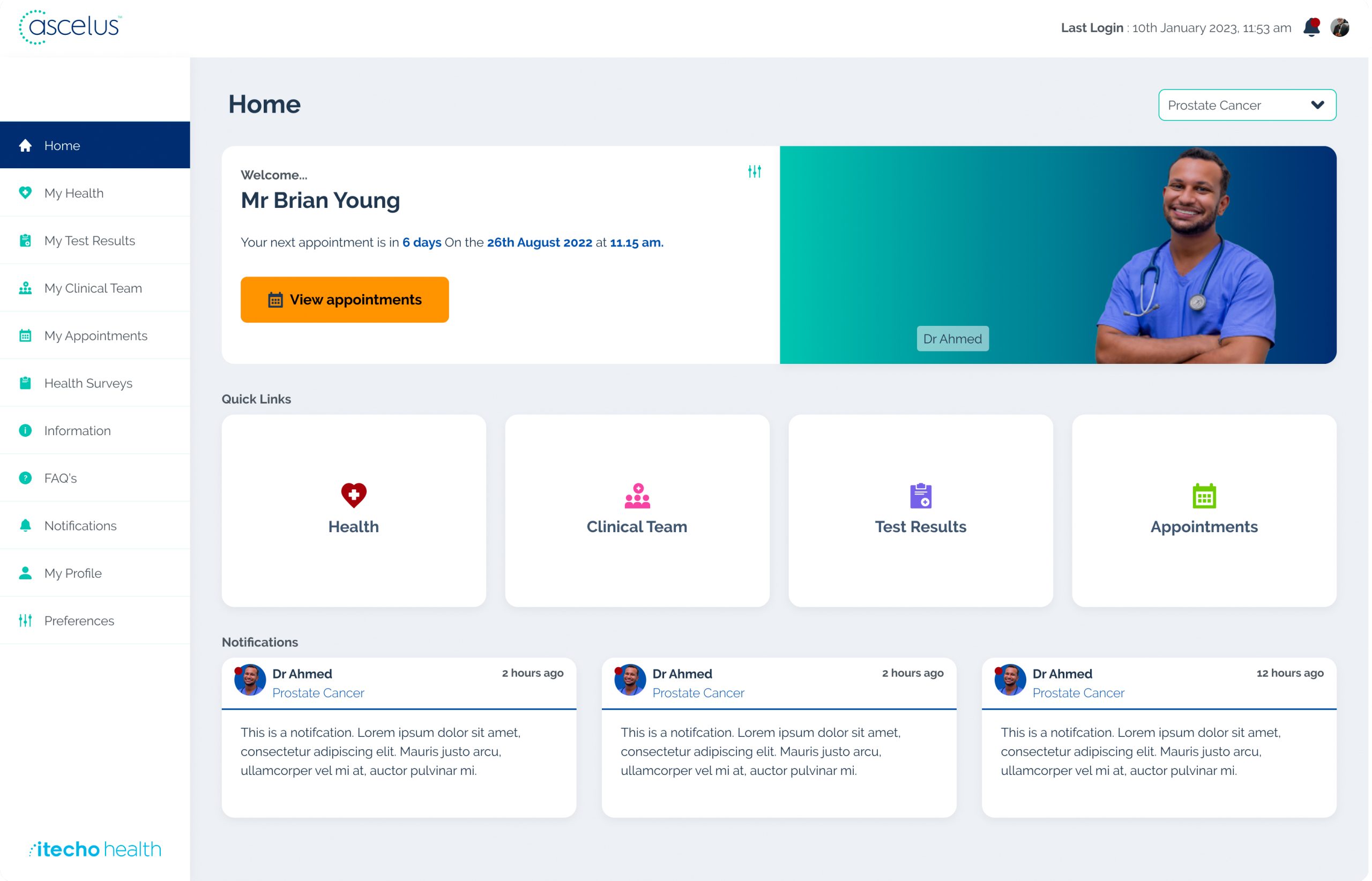Long-term Haematological Conditions
The Problem
15 million
Number of people in England are living with a long-term condition
133 million
Number of people in US are living with a long-term condition
100 Million
Average number of NHS outpatient appointments that take place each year
65%
Proportion of outpatient appointments used to manage long-term conditions
70%
Proportion of the NHS/Social Care budget use to manage long-term conditions
The cost to manage patients with long-term conditions keeps growing and healthcare budgets cannot keep pace with the increase in demand. More efficient, productive and economic models are needed.


Our Solution
In partnership with world-leading clinicians, patients and NHS service users, we developed the Ascelus platform to digitise patient pathways and enable safe, effective and inclusive remote monitoring for patients with long-term conditions.
Ascelus digital pathways enable more convenient asynchronous virtual reviews and automated monitoring for low-risk patients.
Digital pathways established with Ascelus maximise clinical efficiency, productivity gains and cost-effectiveness while empowering patients and staff.
AI supports reclassifying patient risk and identifies those requiring more urgent care or a face-to-face appointment.
Research, Innovate, Evaluate
We are leading a £2.3M NIHR funded ‘Real World Evidence Challenge Award’ to assess, the experience and empowerment of a diverse group of patients from implementation of Ascelus for the management of eight long term haematological conditions across 4,650 patients, at two sites (Kings College Hospital NHSFT and Sheffield Teaching Hospitals NSHFT). This collaboration brings strong patient and public involvement led by five patient-focused charities. The research involves further co-design of the Ascelus platform with clinicians and patients and subsequent implementation and clinical validation of a robust digitally enabled care pathway.
Our research will validate the effectiveness and safety of Ascelus in routine clinical management across eight/four long-term conditions, exploring benefits in terms of capacity and productivity: Specifically, we will:
- Conduct a 12-month patient validation and safety cohort observational study across 8 long-term conditions at Kings College Hospital NHS FT
- Examine variations in empowerment and experiences across different demographic groups using Ascelus, addressing disparities in care delivery.
- Use discrete choice experiments to establish patient preferences for a digital pathway compared to face-to-face outpatients and telephone/video consultation.
- Quantify the cost/benefit analysis through independent economic modelling led by the University of Leeds.
Assess clinician motivators and barriers to adopting Ascelus to foster greater acceptance and integration of the platform into clinical practice.
Long-term conditions evaluated in this project include: chronic lymphocytic leukaemia, myelodysplasia, Monoclonal Gammopathy of Undetermined Significance (MGUS), smouldering (asymptomatic) myeloma, hemochromatosis, iron-deficient anaemia and sickle cell disease.


